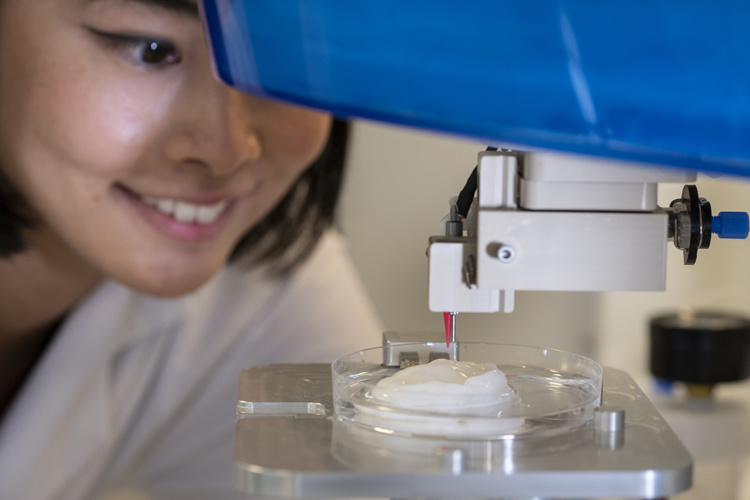Reconstruction of facial cartilage defects from trauma, burns, skin cancer and congenital conditions, currently relies on using the patient’s own cartilage, usually from the ribs. Harvest is associated with donor-site scarring and other complications including chest-contour deformity, pain and lung damage. Previous attempts to engineer cartilage for facial reconstruction have focused on combining synthetic scaffolds with non-specific stem cells i.e. from bone marrow or fat, with no successful clinical translation to date. The RECONREGEN team was the first to successfully isolate human nasoseptal cartilage-derived stem/progenitor cells and demonstrate they can make cartilage matrix in vitro.
Particular interest lies in the possibility of 3D printing custom-made tissue into exact shapes to match the patient’s missing tissue which could become the future gold standard of reconstruction. However, 3D printers, like all printers, need suitable ink. The team has developed novel, natural (tree pulp derived) nanocellulose bioinks with ideal properties for printing but which also encourage nasoseptal cells to make more cartilage than they would in other types of bioinks.
This project aims to determine the ideal combination of cells to grow new cartilage, optimise nanocellulose bioinksfor3D bioprinting patient-specific cartilage constructs and show that they are safe, non-toxic and well-tolerated by the immune system. This will enable the team to create durable cartilage constructs which we can be safely and effectively implemented in human clinical trials. If successful, the outcomes could revolutionise our ability to reconstruct form and function in patients affected by facial deformities and eliminate donor site scarring and other complications.


